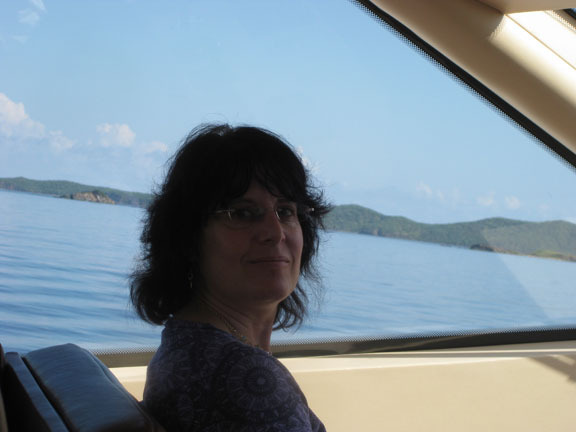Opinion: Mourning in the Caribbean
In my view
by Miriam Bradman Abrahams
Issue of February 5, 2010/ 21 Shvat 5770We were looking forward to a typical Caribbean getaway: palm trees, blue skies, hot sunny days, and relaxing on the beach. Well, the climate cooperated beautifully and nature stayed its course, but unfortunately in more ways than we expected. We were staying with my cousins, whose dad was quite ill in the hospital, but none of us could have predicted that the patriarch of my family in San Juan wasn’t going to make it since my uncle had always recovered from his close calls.My cousins generously and graciously hosted us for the first few days of our visit, seemingly happy to have short breaks from the sadness of their hospital vigil. They made time to tour us around showing us some sights on their beautiful island. We visited my aunt at her husband’s bedside and eagerly caught up on other family news and reconnected with her children who we meet up with at bar mitzvahs and weddings. But conversations inevitably returned to their father and their growing resignation and acceptance of his current state.
Though I don’t know if my uncle was cognizant of our presence, I felt that we were meant to be there to represent the Brooklyn/Woodmere branch of the family and so I was grateful for the coincidental timing of our visit. And when he passed away on the last day of our stay, we offered some comfort to the family when we participated in a uniquely Caribbean gathering on the eve of the funeral. We paid our respects to our cousins and aunt at the funeral home where our uncle rested.
According to my cousin, San Juan’s tiny Jewish community maxes at about 1800 individuals including Chabad, Conservative and Reform. It is the only Caribbean island with synagogues for all three denominations. The Cuban community members are a majority at the Conservative shul, Shaarei Zedeck. The shul is also the oldest on the island and also functions as the Jewish Community Center,. Most tourists attend the Chabad shul which is close to the hotels. A wave of Jewish refugees arrived on the island around World War II and more arrived during the revolution in Cuba. The Cuban community is very closely knit, like an extended family on their adopted island.
My aunt and uncle and their first child arrived from Cuba after a brief stop in the U.S. in the early 60’s. Their three other children were born in Puerto Rico. Although the children were all sent to study at universities on the mainland like most of the Jewish community’s teens, my aunt’s four children all returned to live on the island. Here they have resettled with their spouses in close proximity to their parents and have raised families. They are traditional Jews and are active Zionists and Hadassah members who send their children to Hebrew School at the synagogue and to Young Judaea camps in the U.S. and Israel. Although there is no kosher restaurant in Puerto Rico, kosher meat and other products are available for purchase through Chabad and the Conservative synagogue. I remember delicious dairy kiddushes in the shul catered by a Cuban Jewish community member. Services are conducted in Hebrew, but Divrei Torah and announcements are made in Spanish.
Although the Chevra Kadisha in San Juan performs its sacred duty, the families in the community must provide shmira [watching over the dead body] until the time of the funeral, and so family and friends visit with the mourners as they sit by the coffin. For my uncle’s shmira the room was filled with tearful grandchildren and old timers recounting memories of my uncle in a mix of Spanish and English. I asked another aunt of mine if this is the tradition in Miami’s Cuban community, and she said no, but remembers that this was the way in old Havana. My uncle was an esteemed member of the community and a good businessman who owned and operated a business he shared with two of his sons. He was one of many Jewish businessmen who have made a success in Puerto Rico. His grandchildren immediately flew in for the funeral from Israel, New York and California; a sibling came from Texas and a cousin came from New Jersey. Poignant speeches were made by the eldest son who represented his siblings, and by one of the granddaughters.
Although the Jewish community in San Juan is so tiny compared to ours here in New York, we have witnessed firsthand how they all come together for both joyous and sad life cycle events. Jewish heritage is valued and expressed clearly at these times.
It was bittersweet sharing this week with my family and now we look forward to returning for an upcoming happy event: a bar mitzvah in the fall. Hopefully, soon we’ll be visiting for the weddings of my cousins’ children.

 45.0°,
Partly Cloudy
45.0°,
Partly Cloudy 




